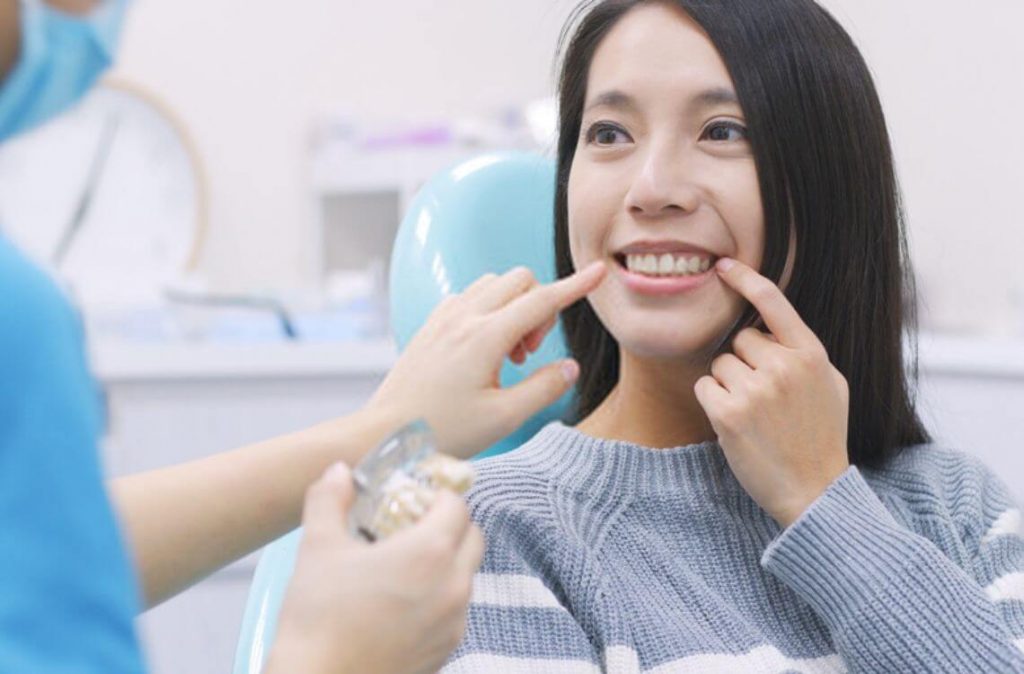Whether you are pregnant or not. We know that taking care of our dental is very important as it is related to our health. It is true that due to the hormonal changes during pregnancy, gum bleeding becomes more prevalent. Inflammation of the gum or gingivitis is rather common in pregnancy. It can be uncomfortable and also cause swelling, bleeding, redness or even tenderness in the gum tissue.
Although it may be uncomfortable, it rarely causes any problems. However, a more advanced oral health condition called periodontal disease, which is a gum infection. It destroys the attachment fibres and bones that support and hold teeth in the mouth may pose a risk to your pregnancy.
Some women crave for sweet food during pregnancy, and this can increase the risk of tooth cavities. Therefore, it is important to brush and floss your teeth regularly, even during pregnancy. Visit your dentist regularly before and during pregnancy is essential to ensure proper dental care and to prevent complications associated with any dental diseases.
Dental Care During Pregnancy
Periodontal Disease And Pregnancy
Based on previous studies, periodontal disease may cause premature birth and low birth weight babies. One of the possible explanations is that the oral bacteria which caused inflammation of the gum may trigger the release of a hormone called prostaglandin, which in turn may trigger early labour.
Other studies have shown that periodontal disease can be associated with low birth weight babies, gestational diabetes mellitus & preeclampsia. Therefore if you have periodontal disease, you must treat the problem before you embark on your pregnancy.
If you suffer from periodontal disease during pregnancy, you must see your dentist as quickly as possible. Specific dental procedures, such as scaling and root planing, may be able to reduce the risk of premature birth. Ask your dentist about it.
Toothache Medication During Pregnancy? Is It Safe?
Some medication such as paracetamol and acetaminophen are safe to take throughout pregnancy. But the used of non-steroidal anti-inflammatory drugs may not be safe.
If you are required to take an antibiotic for your toothache, you must let your dentist know that you are pregnant. The antibiotics in the Penicillin and Cephalosporin groups are generally safe in pregnancy. The use of Tetracycline should best be avoided because it can affect the bones and teeth of a developing baby.
Dental Procedures During Pregnancy
Most dental procedures are safe during pregnancy. The use of local anaesthesia for pain relief during a dental procedure is also safe. Some major dental procedure may require the use of general anaesthesia which is to render you unconscious during the procedure.
Studies had shown that the use of general anaesthesia would not harm your baby. Although, some practitioners may want to delay the procedure until you are in the second trimester. It concerns the effect of general anaesthesia onto the development of the baby’s organs which could risk of miscarriage. However, there is no reliable evidence that suggests general anaesthesia during the first trimester can cause harm or impair the development of your baby.
During the third trimester, due to water retention and swelling of your airway, general anaesthesia may pose difficulties as there is a higher risk of stomach content aspiration because of the enlarging womb that compresses your stomach. Therefore, your practitioner may delay the procedure until you are safely delivered.
Dental X-Rays During Pregnancy? Will it Affects My Baby?
Dental X-rays are usually postponed until after your labour to avoid radiation. However, the actual risk of radiation during a dental X-ray is generally minimal. Dental X-ray is targeted to your mouth and is far away from your womb, and hence, the risk of exposing radiation to your baby is small. Therefore, if you require an X-ray for dental procedures, the benefit may outweigh the risk in some circumstance.
There are a few ways you could further minimise the risk of exposing radiation to your baby during a dental X-ray. Always inform your practitioner that you are pregnant so that they could take extra-precaution during an X-ray. A lead apron which is an abdominal shield should be used to protect your womb, and a collar shield should be used to protect your thyroid.
The Right Way To Dental Care During Pregnancy
As we mentioned earlier on, it is important to brush and floss your teeth regularly during pregnancy. Brushing your tongue at the same time can help to combat bacteria and keep your breath fresh. Brushing your teeth 30 minutes to 1 hour after every meal can help to take away the funny taste in your mouth, especially during the first trimester. If you brush your teeth right after your meal, it will affect your tooth enamel which is the clear surface that protects your teeth.
Visit your dentist regularly before and during pregnancy to ensure you are getting proper dental care and to prevent any dental complication. Although fluoride protects teeth from cavities, some studies suggest that high concentrations of fluoride in water may cause harm to the developing baby.
You must remember that dental care is very important for both mummy and baby. Take extra care of your dental during your pregnancy, who knows it will do wonders for you later on. Stay tuned for more write up from us. Make sure to check out Motherhood.com.my for all your baby and mummy needs.
